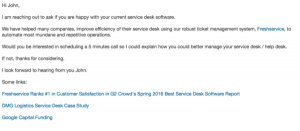The world has changed. This is not news. But when the worldwide business ecosystem is thrown into chaos, is your team ready to rise to the occasion?
Companies need to be agile and flexible to face changes in a transitioning age. The key lies in the flexibility and scalability of an organization’s workflow management system so that adapting to any unexpected changes is seamless. No downtime, no interruption of “business as usual.”
Let’s face it, in the best of times, teams face a multitude of challenges on a regular basis. Employee-related risk is a constantly growing complexity:
- Evolving rules & regulations and pursuant risk of fines and penalties
- Keeping errors in check by managing workflow and standardizing practices & policies
- Proving compliance to regulators and stakeholders
And those are just the day-to-day challenges for a standard employee teams. When unexpected conditions arise, how prepared are you to avoid the chaos that can result?
Since the onset of COVID-19, professionals have faced new daily challenges to add to the aforementioned list, including:
Engaging and monitoring a remote and hybrid workforce:
The pandemic has forced companies to rethink how they do business. Ensuring your remote workforce is engaged and supported requires a digital technology suite to reach the work-from-home and out-of-country employees.
Onboarding and offboarding require entire workflows unto themselves, especially when done remotely.
COVID-19 risk factors among workers:
Healthcare costs and lags in production can impact a business’ bottom line significantly. COVID-19 tracking has become paramount. One study estimated that costs for absent workers has increased by 117% during the pandemic.
COVID-19 vaccination tracking:
As President Biden’s vaccine mandate for the private sector approaches, vaccination tracking has also become an issue for most organizations. Through the proper workflow automation, employees’ vaccination status and details can be easily tracked through the HR/payroll system. Company policy guidelines can be automatically monitored and tracked, securely and with confidentiality.
So how does an organization stay agile and meet all of these ever-evolving demands?
What are the benefits of workflow automation?
The answer lies in enterprise workflow automation. The benefits of automation are numerous, not the least of which is the ability for an organization to create a single source of truth, by drafting, customizing, and automating company policies, as well as communicating them effectively to the workforce, however remote they may be.
There are numerous other benefits as well, including:
- Collaborate across the organization
- Eliminate tedious tasks and redundancies; save time and costs
- Gain instant online access to I-9 and immigration policy changes
- Staff are free to focus on their expertise, while the software does the ‘dirty work’
- Complex processes can be digitized and automated
- Minimize errors and boost efficiency
- Ensure compliance and generate audit trails
A good workflow automation software is also scalable, to grow as you grow, and able to adapt to the unexpected.
At the end of the day, when things go sideways from any type of unforeseen event—as we’ve experienced with the pandemic and rapidly changing policies due to the shifting political landscape—a company doesn’t have to scramble, worrying about efficiencies, when a solid, scalable workflow management system is in place.
Let technology handle the customizing, communicating, and compliance so that you can spend time on what matters most: keeping the business running productively and seamlessly.
Business & Finance Articles on Business 2 Community(44)







![State of B2B Content Marketing in 2021 [Infographic]](https://www.onlinesalesguidetip.com/wp-content/uploads/2021/11/State-of-B2B-Content-Marketing-in-2021-Infographic-56x300.jpeg)